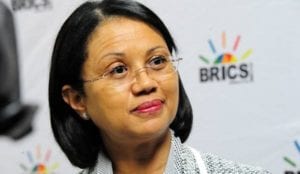Following the signing of an Inter-Governmental Framework Agreement on Nuclear Cooperation yesterday between South Africa and France the stage has officially been set for a collision of lofty ambitions and financial pragmatism.
This, along with the recent discussion surrounding nuclear energy with Russia, offers a perfect platform for South Africa’s decision makers to indulge some serious introspection. The question they should really ask themselves is this: When was the last large-scale infrastructure project delivered on time and on budget? Medupi Power Station? The Gauteng Freeway Improvement Programme? The World Cup Stadiums? Unfortunately the answers to these questions reveal a cemented track record of budget blow-outs and continuously lengthened project timelines. It makes no sense for South Africa to be exploring nuclear energy possibilities with two European “leaders” in the field as, more specifically with France, the construction of nuclear power projects have traditionally been notorious for spiralling out of financial control. Perhaps some solace can be sought in the wording of a statement released by the Department of Energy, “This agreement initiates the preparatory phase for the possible deployment of French nuclear technology in South Africa.”The agreement was signed by Energy Minister Tina Joemat-Pettersson and the Minister of Foreign Affairs of the French Republic, Laurent Fabius.
The fine print of the agreement reveals that points of action include skills development, localisation of nuclear technology as well as research and development in South Africa. “This paves the way for establishing a nuclear procurement process. To date, South Africa has concluded several Inter-Governmental Agreements and will proceed to sign similar agreements with the remaining nuclear vendor countries in preparation for the rollout of 9.6 GW Nuclear New Build programme,” said Joemat-Pettersson following the signing. “The expansion of South Africa’s nuclear programme will yield benefit for the country ranging from mining, beneficiation, manufacturing, industrialisation, skills development and power generation without a sharp increase in greenhouse gas emissions. This programme will create the much needed quality jobs and catapult South Africa into the knowledge economy to achieve energy security for the successful implementation of the country’s National Development Plan,” maintained Joemat-Pettersson.






